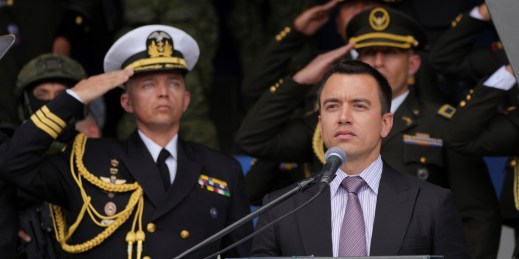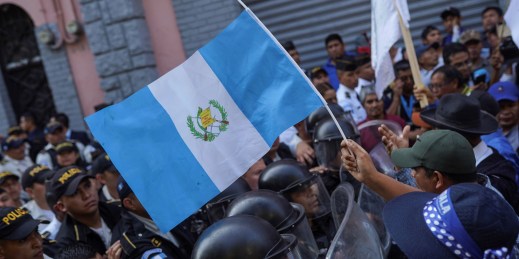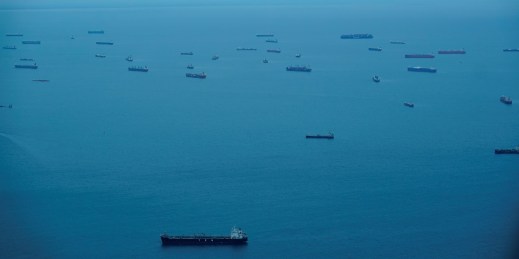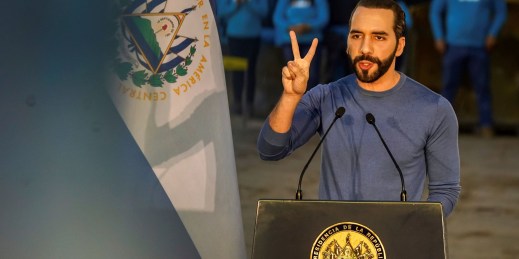
Ecuador’s grave security crisis could prove pivotal for the future of the country’s democracy. Similar crises across Latin American have created the temptation to toss out democracy as the cost of regaining security, as has been on most prominent display in El Salvador. For Ecuador, the stakes for could not be higher.



